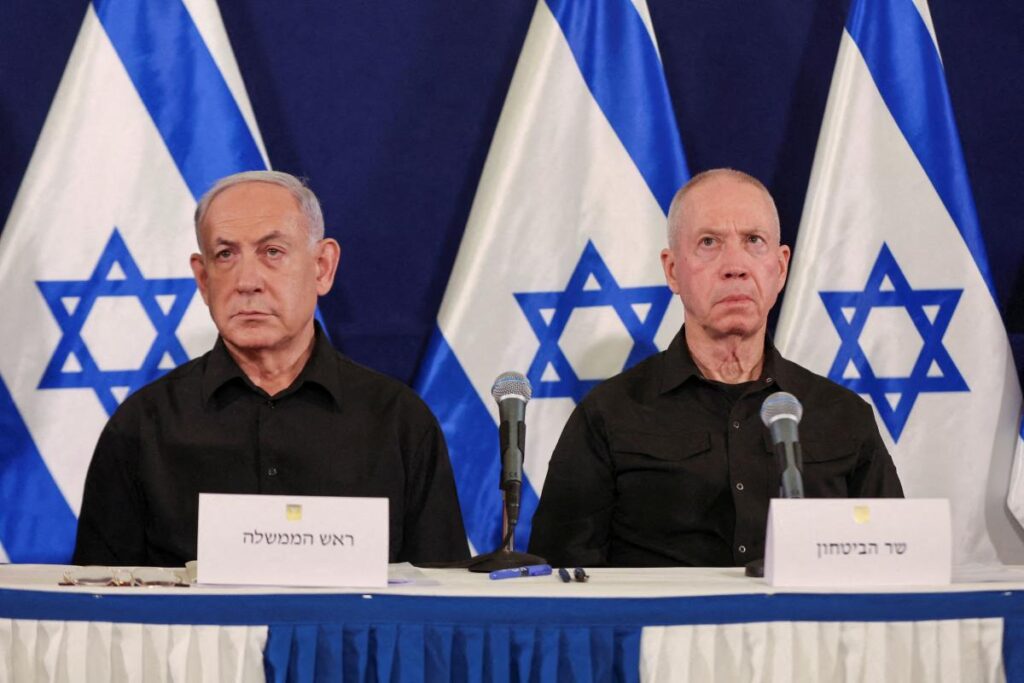Israeli Prime Minister Benjamin Netanyahu’s recent decision to fire Defense Minister Yoav Gallant has sent shockwaves through the political landscape, marking a significant shift in the country’s defense leadership during an ongoing war with Hamas. Netanyahu’s office announced Gallant’s dismissal, emphasizing a breakdown of trust between the two, particularly regarding the management of the conflict in Gaza. This strategic change sees Foreign Minister Israel Katz stepping into Gallant’s role, with Gideon Sa’ar taking over as Foreign Minister. Netanyahu’s announcement and subsequent video on social media highlight his concerns about Gallant’s handling of the situation, framing his decision within the context of a pressing military crisis.
The political ramifications of Gallant’s dismissal are substantial, especially considering the deeply intertwined nature of military strategy and domestic politics in Israel. Axios reporter Barak Ravid noted that Netanyahu’s actions are largely influenced by the necessity to secure support from the ultra-orthodox members of his coalition, who have threatened to destabilize the government unless certain laws favoring their community are passed. Gallant’s opposition to these laws positioned him at odds with the ultra-orthodox parties, illustrating how domestic political pressures significantly shape defense policy and personnel decisions in Israel.
This is not the first time the relationship between Netanyahu and Gallant has been turbulent. Earlier in 2023, Gallant was briefly dismissed over disagreements related to a judicial overhaul, only to be reinstated after widespread public protests. These political uprisings reflect a society that is actively engaged in the democratic process and responsive to changes in leadership. In light of Gallant’s dismissal, demonstrations have erupted once again, indicating that his departure is resonating with public sentiment and amplifying ongoing debates surrounding government transparency and accountability.
Gallant has been perceived as a moderating influence within what many view as a largely right-wing Israeli government. His advocacy for a hostage deal with Hamas and critiques of Israel’s heavy-handed approach toward Gaza contrasted sharply with the more aggressive stances favored by far-right factions within the government. His perspective on the conflict, which favored restraint and strategic dialogue, positioned him as a voice of reason during a time of escalating tensions. Such views have placed him in opposition to Netanyahu’s hardline strategies, culminating in a growing rift that ultimately led to his removal.
In recent developments, Gallant has increasingly called for a reassessment of the war’s objectives, urging a more comprehensive look at Israel’s goals in Gaza. This request was met with dismissal by Netanyahu, who termed Gallant’s proposals as “bizarre,” further underscoring the diverging views on military strategy within the government. The dismissal of Gallant not only reflects a shift in personnel but also highlights an ongoing ideological battle within Israeli politics, pitting a more moderate approach against an aggressive military posture favored by some factions.
As Israel navigates the complexities of wartime governance and internal political pressures, Gallant’s firing raises questions about the future direction of military strategy and leadership within the country. The transition signifies a potential pivot toward a more hardline stance in the ongoing conflict, in alignment with Netanyahu’s agenda, while also illustrating the precarious nature of political alliances in a coalition government. This latest upheaval points to the delicate balance Israeli leaders must maintain between military objectives and the nuanced demands of coalition politics, set against the backdrop of a deeply polarized society. The unfolding situation invites scrutiny not only of individual leaders but also of the broader ramifications for Israel’s security policy amid a turbulent regional landscape.

